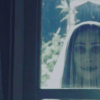Scene optimizer - How to restore back the texture?
 James
Posts: 1,090
James
Posts: 1,090
I run the "scene optimizer" product.
At first everything seems ok, but there are some textures that show the size seem doesn't change. So I keep lowering them a few times until I realize the texture maps becomes very small. And I had alot of texture maps in diffrent sizes..
I want to restore back the original. But I don't understand how to use the script to restore. It's aksing for a file.
Post edited by James on


Comments
Did you "store" the texture map state before optimizing?
The "store" script generates a file which lists which texture was used on what surface when you run it.
The "restore" scripts use a "storage file" that you have to select to know what it needs to restore.
Did you "store" the texture map state before optimizing?
Nope.
Is it too late if I didn't do it in the first place?
Is there a way to reset texture back to original, then.
Cos I've build a large set.
The "restore" scripts won't work without a storage file.
If you don't have a backup of the scene or a storage file listing the textures "pre-optimization", you will probably need to reapply the original materials to each item you want to reset.
V3Digitimes, the Scene Optimizer creator, answers the same question for a user who asked it in the Scene Optimizer [Commercial] forum on August 31:
https://www.daz3d.com/forums/discussion/164851/scene-optimizer-commercial#latest
The WP Guru made an excellent video demo about using Scene Optimizer on his YouTube channel two years ago. I recommend watching it for anyone interested in getting started with Scene Optimizer.
Using the Scene Optmizer in DAZ Studio - https://www.youtube.com/watch?v=cNy_OaMXuqM
I'm not a fan of this, it can lead to headaches like the OP has experienced. Plus it will bloat your drive with the extra textures which can also lead to other issues later down the road. Is it not more ideal to use the built in Advanced Render Setting Texture Compression? Where your textures will be compressed as they sent to the process for rendering and doesn't effect the originals in the scene.
They are different things ~~
Texture maps with different resolution (pixel size) consume different VRAM... e.g. theoretically a 4K texture map (4096x) consumes 64MB VRAM, when rendering, Iray engine gives it appr. 75% compression by the feature "Texture Compression", then VRAM consumption will be reduced to appr. 16MB.
While Scene Optimizer firstly downsizes the 4K map to 2K, so the initial VRAM consumption is 16MB, then the consumption will be appr. 4MB after the process of "Texture Compression" is done.
Lots of folks have already well set the thresholds in Texture Compression but still get fallback to CPU, that's the pimary reason why they have to go for using SO ~~
Ok got so over high threshold is 75% compression? any idea what the medium is?
As far as I experiment thru DS versions, appr. 60 ~ 65% compression ratio for Medium.
BTW, in latest DS PB, there's a new way of setting Texture Compression and an Off option is given, so if folks are not short of VRAM, just simply set it as Off to disable any texture compression.
Off! sweet, because here was mine..yeah like I really need to compress with a q8k
but it's always good to have options and know what they are.
yeah I push it too to make some crazy detailed stuff.
It's my "routine settings"... if there's no potential fallback. Without any compression, rendering gets faster from very beginning.
oh yeah my next upgrade is definantly a6000, does that setup play well together with the 4090? I mean are you limited when packing a scene up to the GPU to the one with the lowest VRAM? I strictly use my 4090 for display and gaming.
crazy gpus....
So far so good ~ but sometimes I switch the display card when playing games , ho~
@crosswind
what kind of PSU are you using to feed those monsters?
When rendering with iray, it seems to use much less resources if I render as photoreal in the viewport, compared to the same rendering in a render window the same size and settings. I suspect in the viewport iray use the drivers to swap textures from ram to vram, the same as opengl does, while in a render window it can't. This technique can avoid the scene optimizer all together, if the viewport size is enough for your purpose.